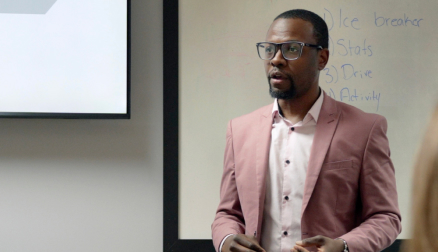Introduction
Usually, most people look forward to the start of September. The leaves start to change and apples and pumpkins are in season, however, this time of year also brings hurricane season. This may not affect everyone in the United States, but the transportation industry experiences a very large impact. Retailer’s standards become harder to meet and drivers are put into dangerous situations. Hurricane season tends to be a very high stress time for drivers, transportation companies, and third-party logistic companies. As mentioned in a recent article by Freight Waves “Large third-party logistics (3PL) companies have also been working around the clock to track the storm, prepare response plans, and move loads into communities that are likely to take the biggest hits”. The transportation industry experiences large changes before, during, and after a large storm hits.
Preparation
Before a storm hits, most consumers like to stock up on necessities so they feel prepared no matter the storm’s size. The transportation industry must consider and recognize that this is a priority due to a likelihood of increased demand. The industry must also prepare for route changes, unavailability of truckers, and cancellations while monitoring the storm. Drivers will prepare their trucks for the upcoming weather, while focusing on their personal life involving their families and homes. Many companies like to concentrate on the well-being of their drivers before the storm hits to assure, they have the right skills and supplies to endure the storm. Jeff Bowron, Vice President of US 1, states “Surviving a hurricane is about being prepared, exercising common sense and staying informed before, during, and after the storm”. Conducting research on the storm ahead of time can prepare companies and drivers on what precautions to take.
During the Storm
The preparation done before a tropical storm hits can show how well the industry handles a natural disaster. In most cases, drivers are unable to deliver goods because of the current weather conditions. According to Mission Financial Services, “During the storm volume will drastically decrease due to unsafe road conditions and closed roads”. Depending on the tropical storm, traveling may not be possible because of flooding or very heavy rain. The recent flood in Texas has made traveling impossible even for large vehicles, such as semi-trucks. Most freight is stored on higher ground in large groups to defend against strong winds, however, FEMA takes on the job to move emergency relief supplies. This is extremely important considering most transportation comes to a standstill and many people need emergency supplies during and after a tropical storm. FEMA not only delivers during the storm, but also after the damage has been done.
After
Once the storm has subsided, transportation companies are left with high demand and difficult routes. According to Mission Financial Services, “Flooded roads, downed trees, and damaged infrastructure slow drivers’ ability to meet the demands waiting for them.” Although many people may think all problems will resolve once the storm is over, the transportation industry is still faced with several issues. Difficult, more timely routes may have to be taken because of destruction caused by a tropical storm. With that being said, drivers also tend to be paid at a higher rate because finding individuals who are willing to travel in these dangerous circumstances becomes harder. During Hurricane Harvey in 2017, Dallas to Houston increased by $1.60 per mile to $4 (a 67% increase) while DAT noted that $4 per mile had never before been reported on that lane. Negotiating higher pay can make meeting deadlines and organizing the initial travel between industries more difficult. Attributable to high demand, retailers will notice an increase in price for transportation that will come into effect. Due to supply and demand, higher prices for gas and food can result while some retailers take advantage by price gouging. CBS News mentions that after Hurricane Dorian, a pack of 24 Nestle water bottles could be found for more than twice the regular price. The freight industry may be contributing to increased prices because of delayed shipments, longer delivery periods, and higher rates.
Overview
Even though tropical storms are not avoidable, there are ways that the industry can prepare itself for what is to come. By staying up-to-date on the weather and formulating a plan, the possibility of danger during peak disaster times can be decreased. Dealing with the aftermath of the storm may be difficult, but can improve with time. There will become a large increase in demand which is great for the industry, but can create more stress on transportation companies. Most industries will experience demand variations due to these events; however other industries may not be able to see this coming. The best practice for transportation companies is to communicate delays and price changes to shippers and distribution centers ahead of time. These events may not be preventable, but if handled properly and professionally, this transition may become easier for all industries involved.



